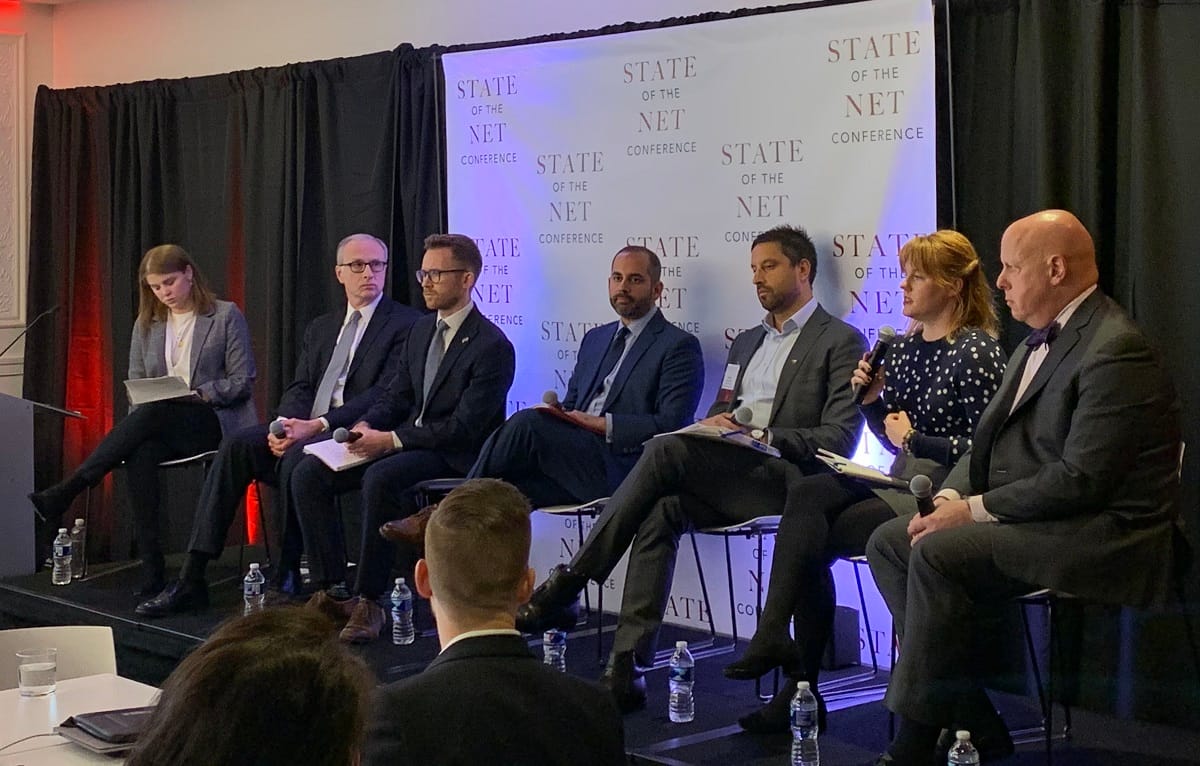U.S., Australian and British Law Enforcement and High Tech Advocates Debate Access to Encryption
WASHINGTON, January 28, 2020 – Proponents of the high tech industry and law enforcement officials from several countries squared off, with fundamental disagreements about whether catching thousands of pedophiles or securing billions of people’s data represented the greater good. Researcher at the MI

WASHINGTON, January 28, 2020 – Proponents of the high tech industry and law enforcement officials from several countries squared off, with fundamental disagreements about whether catching thousands of pedophiles or securing billions of people’s data represented the greater good.
Researcher at the MIT Computer Science and Artificial Intelligence Lab Daniel Weitzner asserted that for any of these goals to be accomplished, there must be trust in the cyberworld.
That only arises when things are continuously transparent, as “security is not a steady state phenomenon.” He also challenged the example that Associate Deputy Attorney General Sujit Raman used as the model balance between consumer privacy and government access.
In rebuttal, Raman used the example of catching pedophiles through accessing Facebook. That represented a higher moral imperative, he said, than a hypothetical leak of private data.
Amie Stepanovich, executive director of Silicon Flatirons Center for Law, Technology, and Entrepreneurship at the University of Colorado, countered that these leaks are not trivial. They implicate billions of lives. Furthermore, Stepanovich argued, pedophiles will simply move from higher-profile platforms like Facebook to those that are more hidden from the Justice Department’s field of view.
Tom Rutherford, head of encryption and online safety in the United Kingdom, defended Raman by offering these statistics: The lack of governmental access to encrypted online crime results in 2,500 pedophile crimes in the U.K. alone. In light of this, he was disturbed by Facebook’s most recent announcement on not changing anything about its encryption policy.
After the tense exchange over encryption, the panel shifted to how other countries have approached the issue.
Regional Director of the Australian Embassy Brendan Dowling said that the relationship between the Australian government and the tech industry in his country is cooperative, not draconian. He reiterated the importance of transparency in the governments’ operations.
The moderator then asked Stepanovich whether Australia’s law allowing law enforcement access to encrypted data would ever be accepted in the U.S. She replied “no.”
The law would “probably violate the First Amendment,” Stepanovich said. She also took issue with the government’s ability to compel a company to change its source code.










